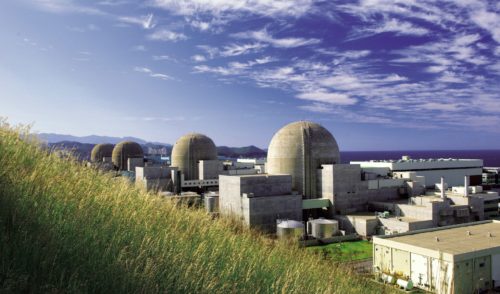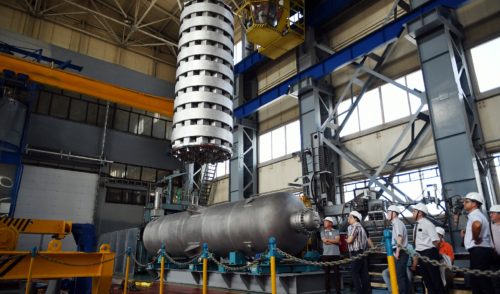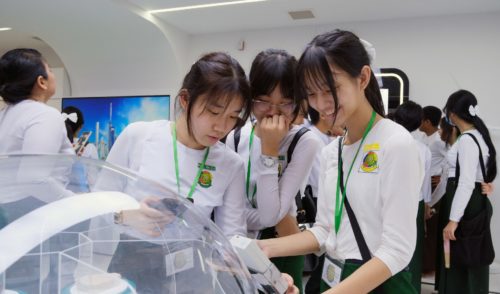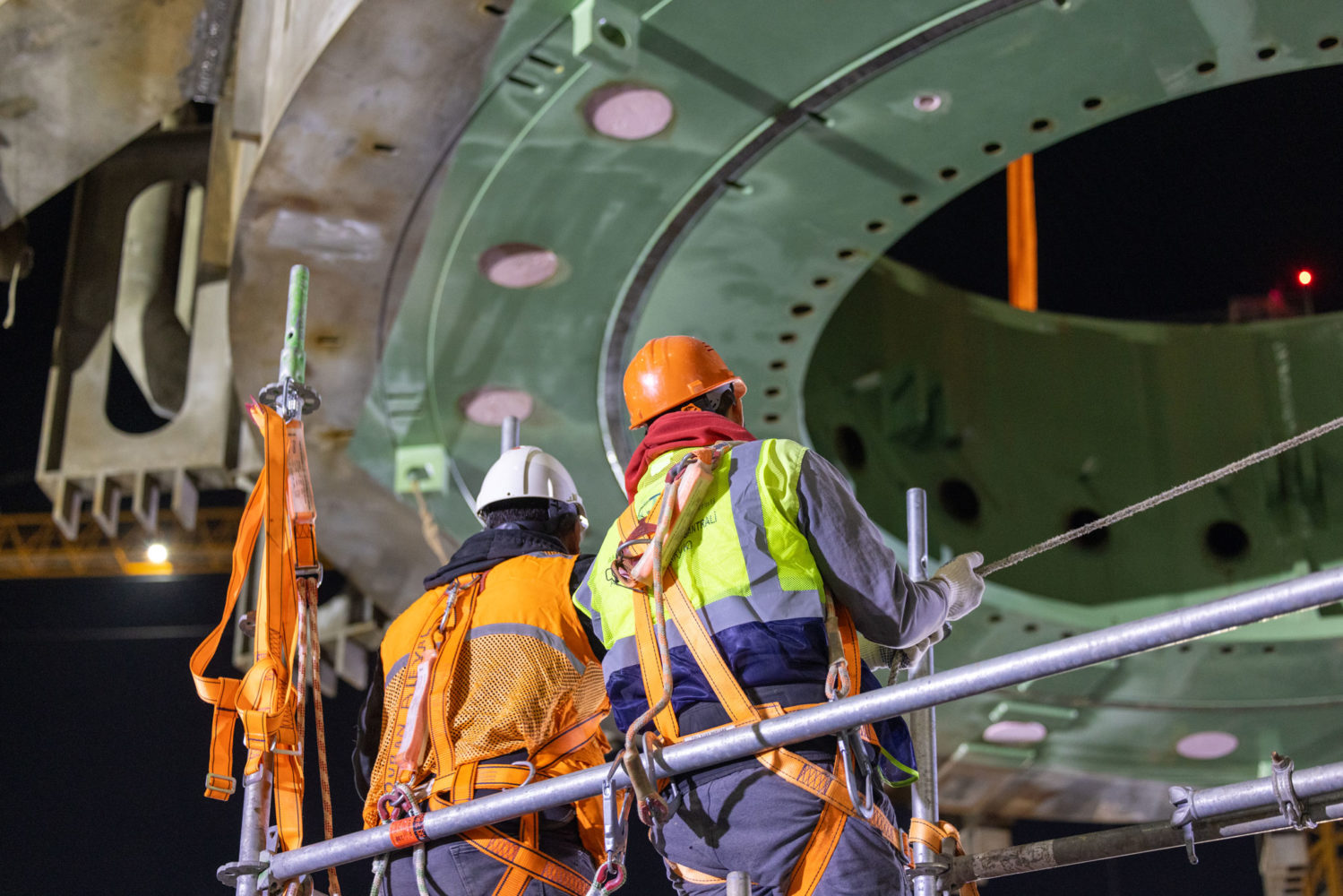
Turkey’s Nuclear Future
back to contentsFull-scale start-up and commissioning works started at Akkuyu NPP unit 1. Meanwhile, the Turkish delegation took active part in the Atomexpo 2024 international forum. Representatives of the Turkish authorities emphasized in their speeches the need for an accelerated development of Turkey’s nuclear power industry.
Akkuyu NPP specialists have successfully implemented hydraulic tests of the spent fuel pool and installation of a reloading machine, which will participate in loading and unloading fuel from the reactor. The assembly of electric motors of the reactor coolant pump set is in full swing.
The auxiliary infrastructure is being commissioned in parallel with the works on the main construction sites, and common-station buildings are being built. The fresh fuel storage facility and the first stage of the training center are operating normally, where 4 shifts of NPP operators have already been trained. The operational workshops of the future nuclear power plant are gradually being completed. The construction of chemical water treatment facilities, steam supply systems, and thermal communications is being completed. Equipment is being installed at the pumping station of Power Unit No. 1, and the main lifting machinery has been put into operation.
Director General of Rosatom Alexey Likhachev examined the constructionwork progress during his working visit to the NPP construction site. “On the ‘nuclear island’ work is going according to plan. This year we will thoroughly check all systems including the primary circuit, conduct hydraulic tests, and load fuel simulators directly into the reactor. We are doing everything to ensure that next year the first unit of Akkuyu NPP becomes part of the energy system of the Republic of Türkiye. All our efforts and the work of Turkish companies are aimed at this. There are many of them here, and they show great professionalism as well as mobilization,” said Alexey Likhachev.
Atomexpo 2024
Speaking at the plenary session of the forum, Turkey’s Minister of Energy and Natural Resources Alparslan Bayraktar said that power consumption in Turkey had tripled in 20 years, and the growth was continuing. According to the Minister, the country needs to develop green sources of energy, including nuclear, in order to meet the growing demand for electricity. Alparslan Bayraktar recalled that Turkey had officially become a nuclear power the previous year as fresh nuclear fuel was delivered to the construction site of the country’s first nuclear power plant. The four units of Akkuyu will collectively generate 4 GW of electricity, but the government plans to increase nuclear capacity, for which Turkey needs to build at least four more units. The minister also emphasized the interest in small-scale nuclear generation solutions and the importance of developing the country’s human resource potential.
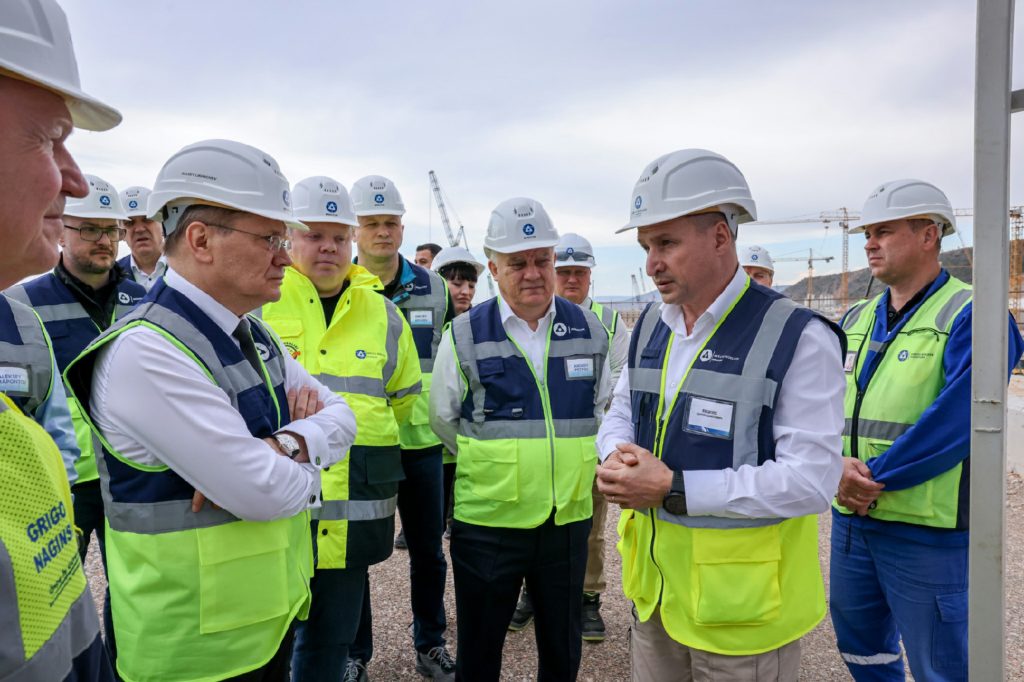
Answering questions from Turkish journalists, Kirill Komarov, First Deputy Director General for Corporate Development and International Business at Rosatom, noted the special importance of the Akkuyu construction project for the Russian nuclear corporation. He pointed out that, according to the intergovernmental agreement, all four units of the plant should be built by the end of 2028. Kirill Komarov said that Unit 1 was in the final construction phase, with commissioning operations underway. All in all, about 30,000 people work at the Akkuyu site, and most of them are Turkish nationals. Local businesses are also extensively involved in on-site works and supply chains. According to Kirill Komarov, over USD 5 billion worth of contracts have been signed with Turkish companies as part of the Akkuyu NPP project, and this process is continuing.
Kirill Komarov emphasized that Turkey had great prospects in the development of nuclear power and confirmed that Rosatom was ready to work on Turkish nuclear new build projects.
News from Akkuyu
TVEL (the managing company of Rosatom’s nuclear fuel division) has entered into an agreement with Akkuyu Nuclear to draft cost estimates for the decommissioning of Units 1 to 4 and the plant’s infrastructure, and to prepare relevant guidelines.
“Rosatom has gained extensive experience in this field and has the necessary technology and solutions. Russian engineers will provide comprehensive support and offer a safe and effective approach to planning the decommissioning of Akkuyu power units and waste management,” TVEL President Natalia Nikipelova commented.
The design life of VVER 1200 reactors at Akkuyu is 60 years and can be extended. This means that Rosatom will, already at the construction stage, develop a cost plan and guidelines and calculate allowances that will be sufficient to finance the timely decommissioning of the nuclear power plant in the future.
In late March, a cantilever truss was installed at Akkuyu Unit 4. As one of the three parts of the core catcher, it is an important link in the safety system as it protects the body and service lines of the core catcher. The truss is designed to carry water supply, steam removal, ventilation, and instrument lines. The cantilever truss is a heavy large-sized steel structure located in the reactor compartment. Weighing 166 tonnes, it measures 9.5 meters in diameter and 2.3 meters high.
“Russian and Turkish engineers involved in the Akkuyu project have accumulated much experience in the installation of reactor structures, so the installation of the cantilever truss at Unit 4 went flawless, and the entire operation took as little as three hours. Installation works at Unit 4 and other facilities of the plant meet all the applicable standards and safety rules and are carried out in full compliance with the time schedule of construction and installation operations,” said Sergey Butskikh, First Deputy CEO at Akkuyu Nuclear and director of the under-construction nuclear power plant.


